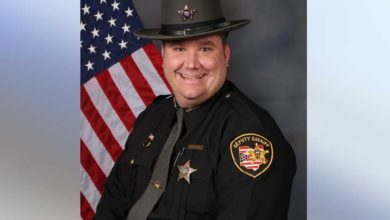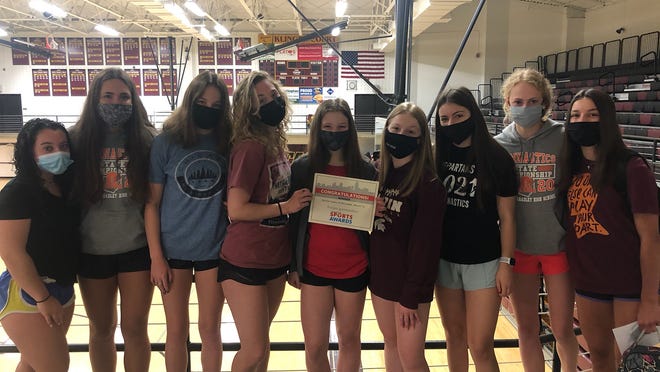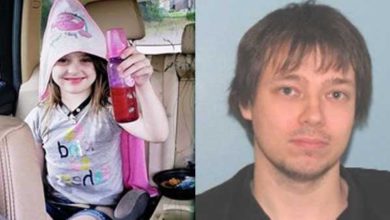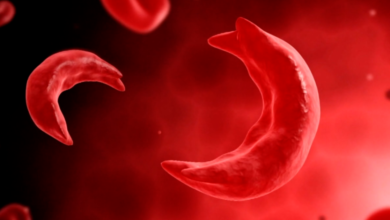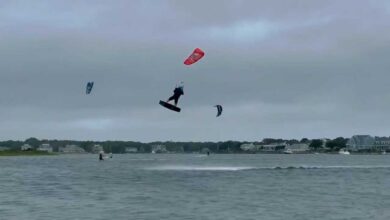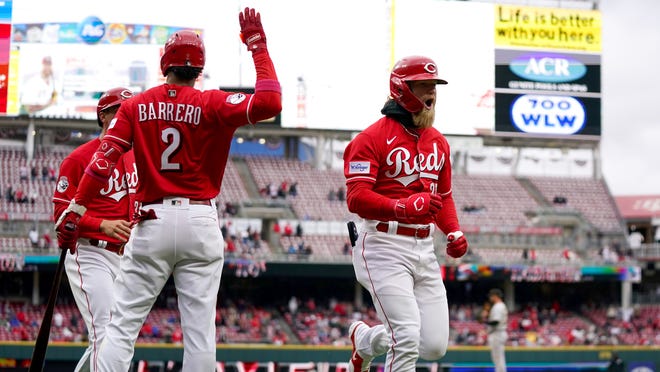
President Joe Biden's administration plans to restrict travel between the U.S. and India beginning Tuesday due to a surge in COVID-19 cases in the country of 1.4 billion people.
India set another daily global record of new cases Saturday, with more than 400,000 new cases and 3,500 deaths, according to official totals experts suspect are undercounts. Less than 2% of the country is fully vaccinated, with just under 150 million doses administered.
With oxygen in short supply at medical facilities, patients are gasping for breath, and their families – overwhelmed by grief and helplessness – are running frantically to obtain oxygen themselves. On Saturday, 12 people, including a doctor, reportedly died at a hospital in India's capital city after the facility ran out of medical oxygen. This week, the U.S. sent supplies to the country, including rapid tests, N95 masks and oxygen cylinders.
Meanwhile, the World Health Organization gave the green light for emergency use to Moderna’s COVID-19 vaccine. Many countries without their own advanced medical regulatory and assessment offices rely on the WHO listing to decide whether to use vaccines.
The organization has already authorized vaccines by AstraZeneca, Pfizer-BioNTech and Johnson & Johnson for emergency use.
Also in the news:
►Disneyland opened Friday morning for the first time in 412 days — the longest closure in the park's 65-year history.
►Cruise lines are cheering word that the Centers for Disease Control and Prevention is committed to resuming sailings in the United States by mid-summer and tweaking some of the rules around resuming trips.
►Canada will get Pfizer vaccines doses from the United States starting next week. The country had been getting Pfizer’s vaccines from its Belgium site. Vaccinations have ramped up in Canada in recent months.
►It was anxiety – and not a problem with the shots – that caused fainting, dizziness and other short-term reactions in dozens of people at coronavirus vaccine clinics in five states, U.S. health officials have concluded.
? Today's numbers: The U.S. has more than 32.28 million confirmed coronavirus cases and 575,000 deaths, according to Johns Hopkins University data. The global totals: Nearly 150.1 million cases and 3.16 million deaths. More than 305.4 million vaccine doses have been distributed in the U.S. and 237.3 million have been administered, according to the CDC. Almost 99.6 million Americans have been fully vaccinated.
? What we're reading: Native American tribes have long struggled with high rates of diabetes. COVID-19 made the problem even more urgent.
Keep refreshing this page for the latest updates. Want more? Sign up for our Coronavirus Watch newsletter for updates to your inbox and join our Facebook group.
Kentucky Derby returns to regular race day, but with fewer fans in attendance
Fans will be in attendance this year at the 147 Kentucky Derby, for the first time since 2019. But that doesn't mean the scene will look like your typical first Saturday in May.
Around 15,000 fans will be permitted to the infield, Churchill Downs announced in early April, while reserved seating options will fill the stands to between 40% to 60% capacity, meaning around 45,000 people total could be at the historic racetrack for the annual Run for the Roses.
Per state and local guidelines, masks are to be worn at all times except when actively eating or drinking. Hand washing locations and hand sanitizing stations will be made readily available throughout the facility. Guests will be encouraged to socially distance themselves from others when possible, according to Churchill Downs.
– Lucas Aulbach and Dahlia Ghabour, Louisville Courier Journa
WHO approves Moderna vaccine for emergency use
The World Health Organization has given the go-ahead for emergency use of Moderna’s COVID-19 vaccine.
The mRNA vaccine from the U.S. manufacturer joins vaccines from AstraZeneca, Pfizer-BioNTech and Johnson & Johnson in receiving the WHO’s emergency use listing. Similar approvals for China’s Sinopharm and Sinovac vaccines are expected in the coming days and weeks, WHO has said.
The greenlight for Moderna’s vaccine, announced late Friday, took many months because of delays that WHO faced in getting data from the manufacturer. Many countries without their own advanced medical regulatory and assessment offices rely on the WHO listing to decide whether to use vaccines. U.N. children’s agency UNICEF also uses the listing to deploy vaccines in an emergency like the pandemic.
The announcement, however, wasn’t likely to have an immediate impact on supplies of Moderna’s vaccine for the developing world. The company struck supply agreements with many rich countries, which will have already received millions of doses.
In a statement Friday, CEO Stephane Bancel said Moderna was "actively participating in discussions with multilateral organizations, such as COVAX, to help protect populations around the world." He was referring to a U.N.-backed program to ship COVID-19 vaccines to many low- and middle-income countries, based on need.
– The Associated Press
Federal mask mandate extended into September for planes, trains, buses
The Centers for Disease Control and Prevention has relaxed mask guidelines for vaccinated Americans, and some states have rescinded mask mandates. But masks will still be a must if you're traveling by plane, train or bus this summer.
The Transportation Security Administration on Friday extended its face mask requirement for airplanes, airports, trains, commuter rail systems and other modes of transportation through Sept. 13. The mandate, which began Feb. 1, was due to expire May 11.
"The federal mask requirement throughout the transportation system seeks to minimize the spread of COVID-19 on public transportation," Darby LaJoye, a senior TSA official, said in a statement. "Right now, about half of all adults have at least one vaccination shot, and masks remain an important tool in defeating this pandemic. We will continue to work closely with the Centers for Disease Control and Prevention (CDC) to evaluate the need for these directives and recognize the significant level of compliance thus far." Read more.
– Dawn Gilbertson
US to restrict flights from India due to COVID-19 surge
President Joe Biden's administration plans to restrict travel between the U.S. and India beginning Tuesday due to a surge in COVID cases.
The move follows a recommendation from the Centers for Disease Control and Prevention, White House press secretary Jen Psaki said. "The policy will be implemented in light of extraordinarily high COVID-19 caseloads and multiple variants circulating in India," she said in a statement.
Details are not yet available on whether flights will be banned from India or if foreign nationals will be banned from entering. Read more here.
– Dawn Gilbertson and Joey Garrison
100M Americans have received two doses or one J&J shot
One hundred million Americans have received their second of two shots or a one-shot vaccine, representing "significant progress" in the fight against COVID-19, White House officials said Friday.
"That's 100 million Americans with a sense of relief and peace of mind, knowing that after a long and hard year, they're protected from the virus," White House Coronavirus Response Coordinator Jeff Zients said.
Zients said the next phase of the nation's vaccine program will focus on harder-to-reach Americans. Surgeon General Vivek Murthy emphasized the need to combat vaccine hesitancy and build confidence in vaccines.
"This is one of these all-hands-on-deck moments," Murthy said, adding vaccinated people should encourage their family and friends to do so, too.
– Ryan W. Miller
Indian Americans feel helpless as family in India falls ill
From 8,000 miles away, New Jersey resident Radhika Iyengar worries about her 82-year-old mother in Bhopal, India. Her mother is suffering from COVID-19 but unable to get a hospital bed or an oxygen tank as the pandemic reaches catastrophic levels. Iyengar remains in Millburn, New Jersey, distraught, unable to travel to India with much of the nation on lockdown.
"It's so overwhelming," Iyengar said, amid sobs, in an interview this week. "Every house has COVID, ill people. People are dying in cars, their homes."
As a second wave of the coronavirus ravages India, Indian Americans are trying to reach loved ones, organizing relief and quietly worrying about relatives caught in what has become the world's worst outbreak.
"India is experiencing the worst health crisis right now," said Sapna Gupta of Short Hills. "Almost everyone is impacted by the virus. Many are losing their loved ones, and many are not even getting to say goodbye." Read more here.
– Mary Chao, NorthJersey.com
Contributing: The Associated Press
Source link


